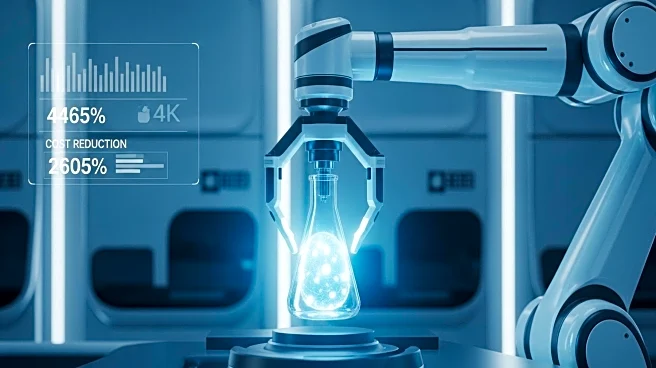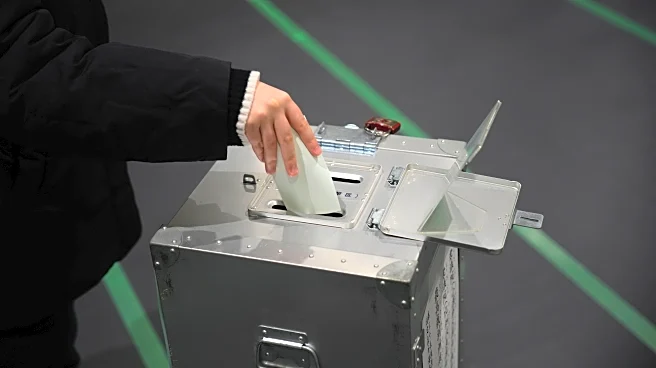What is the story about?
What's Happening?
Multiply Labs has announced the development of a robotic biomanufacturing cluster that significantly reduces the cost of manufacturing cell and gene therapies. Utilizing collaborative robot arms from Universal Robots, the system employs 'imitation learning' technology, allowing robots to replicate expert human techniques. This approach has led to a 74% reduction in manufacturing costs compared to traditional methods, as demonstrated in studies conducted with the University of California San Francisco. The robotic processes also improve space utilization, enabling up to 100 times more patient doses per square foot of cleanroom space. Fred Paretti, CEO of Multiply Labs, explained that pharmaceutical companies videotape their scientists performing tasks, which are then fed to the robots to learn and replicate efficiently and continuously.
Why It's Important?
The development of robot-powered manufacturing processes in cell therapy is a significant advancement for the biotechnology industry. By reducing costs and increasing efficiency, this technology can make cell and gene therapies more accessible to patients, potentially transforming treatment options for various diseases. The ability to produce more doses in less space also addresses logistical challenges in manufacturing, which can lead to faster distribution and availability of therapies. This innovation could benefit pharmaceutical companies by lowering production costs and increasing profitability, while patients may gain access to more affordable and timely treatments.
What's Next?
Multiply Labs' robotic manufacturing system is likely to attract interest from pharmaceutical companies seeking to optimize their production processes. As the technology proves its effectiveness, it may lead to broader adoption across the industry. The company may also explore further enhancements to the system, such as integrating additional AI capabilities to improve precision and adaptability. Regulatory bodies like the FDA may need to assess and approve these new manufacturing methods, ensuring they meet safety and efficacy standards. The success of this technology could inspire similar innovations in other areas of biotechnology and pharmaceutical manufacturing.
Beyond the Headlines
The use of robots in cell therapy manufacturing raises ethical and workforce considerations. While automation can improve efficiency, it may also impact employment in traditional manufacturing roles. Companies will need to balance technological advancements with workforce development and retraining programs. Additionally, the reliance on robots for critical healthcare processes necessitates robust safety protocols and oversight to prevent errors that could affect patient outcomes. The integration of AI and robotics in healthcare manufacturing also prompts discussions on data privacy and security, as sensitive information is used to train these systems.
















